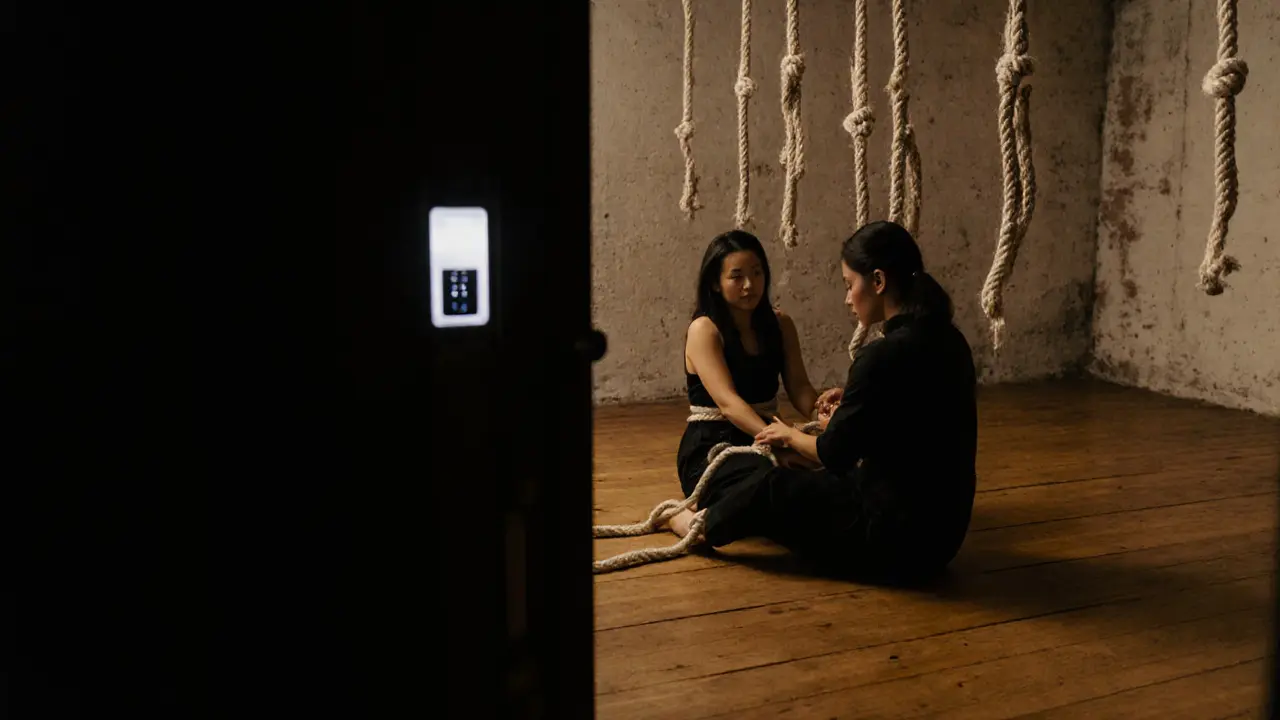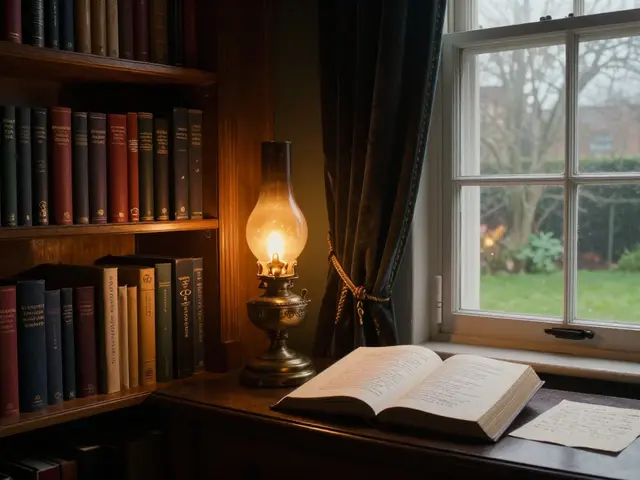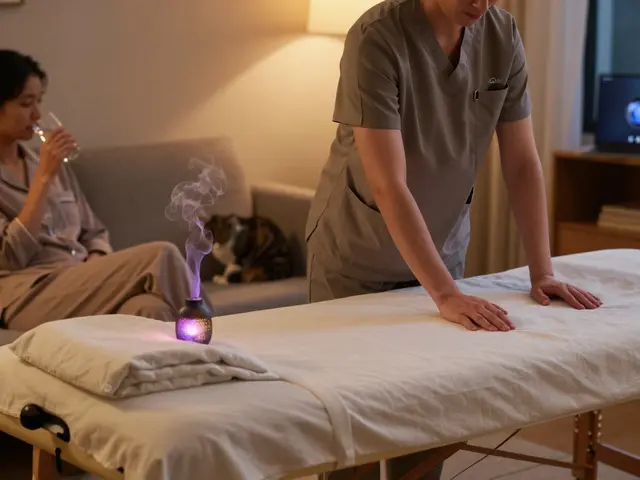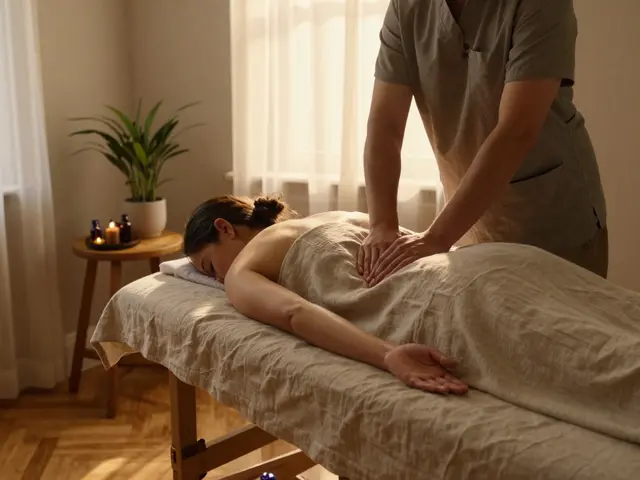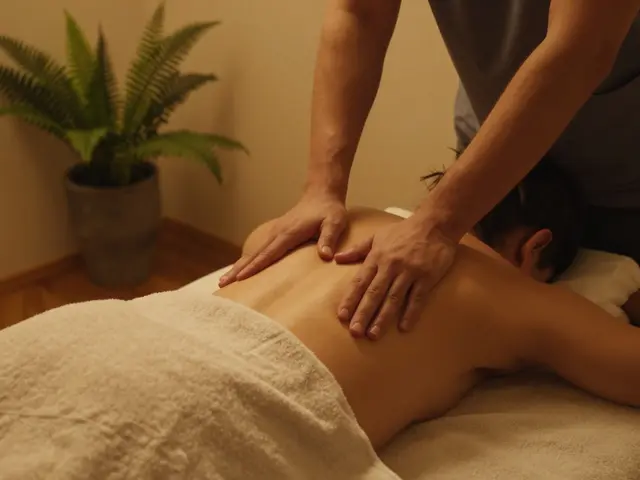London doesn’t just have pubs and parks-it has hidden rooms where chains clink, leather creaks, and power shifts in silence. Bondage London isn’t a single place. It’s a network of studios, private clubs, workshops, and underground events where people explore control, trust, and sensation far beyond what most ever see. This isn’t about shock value. It’s about consent, creativity, and the quiet art of surrender.
What Bondage London Actually Looks Like
If you imagine dark dungeons with spiked whips and screaming, you’re thinking of movies. Real bondage scenes in London are often calm, deliberate, and deeply personal. Studios like Bondage London is a collective of professional dominants, photographers, and safety-trained practitioners offering private sessions in central London. They don’t rent out rooms-they build experiences. Sessions last hours, not minutes. There’s no rush. The focus is on communication: safewords, aftercare, and checking in.
Most clients aren’t regulars at fetish fairs. They’re teachers, nurses, engineers-people who show up in jeans and hoodies, leave in silk robes, and never speak of it again. The anonymity is part of the draw. No one knows your name. No one needs to.
The Rules That Keep It Safe
There are no wild parties here. Every session follows three core rules: consent, communication, and care. These aren’t buzzwords. They’re enforced. Studios require signed agreements. Beginners get a 30-minute intake chat before anything happens. Equipment is checked daily. Injuries are rare-not because people are careful, but because the community polices itself.
One practitioner, who goes by Rhea in the scene, told me: "If you don’t say "red," I’ll stop. But if you don’t say anything at all, I’ll keep asking until you do." That’s the difference between fantasy and reality. In London’s bondage scene, silence isn’t consent. It’s a red flag.
How It Starts: First Time in a Bondage Studio
Most people don’t walk in on a whim. They research. They read. They watch videos. Then they email. The first step is always a questionnaire: "What do you want to feel? What do you want to avoid? Have you ever been bound before?" Answers are private. No judgment.
On the day, you arrive at a nondescript door in a converted warehouse near King’s Cross. No sign. No logo. Just a keypad. Inside, the lighting is low. The air smells like cedar and beeswax. The practitioner asks you to undress slowly. Not because they want to see you naked-but because they want to watch your breathing, your tension, your hesitation.
Then comes the rope. Not chains. Not cuffs. Rope. Japanese shibari, to be exact. It’s not about pain. It’s about pressure. About feeling held. About the weight of silk against skin. One client, a 42-year-old accountant from Hampstead, said: "I’ve spent my whole life controlling everything. For the first time, I let someone else hold me-and I didn’t feel weak. I felt free."
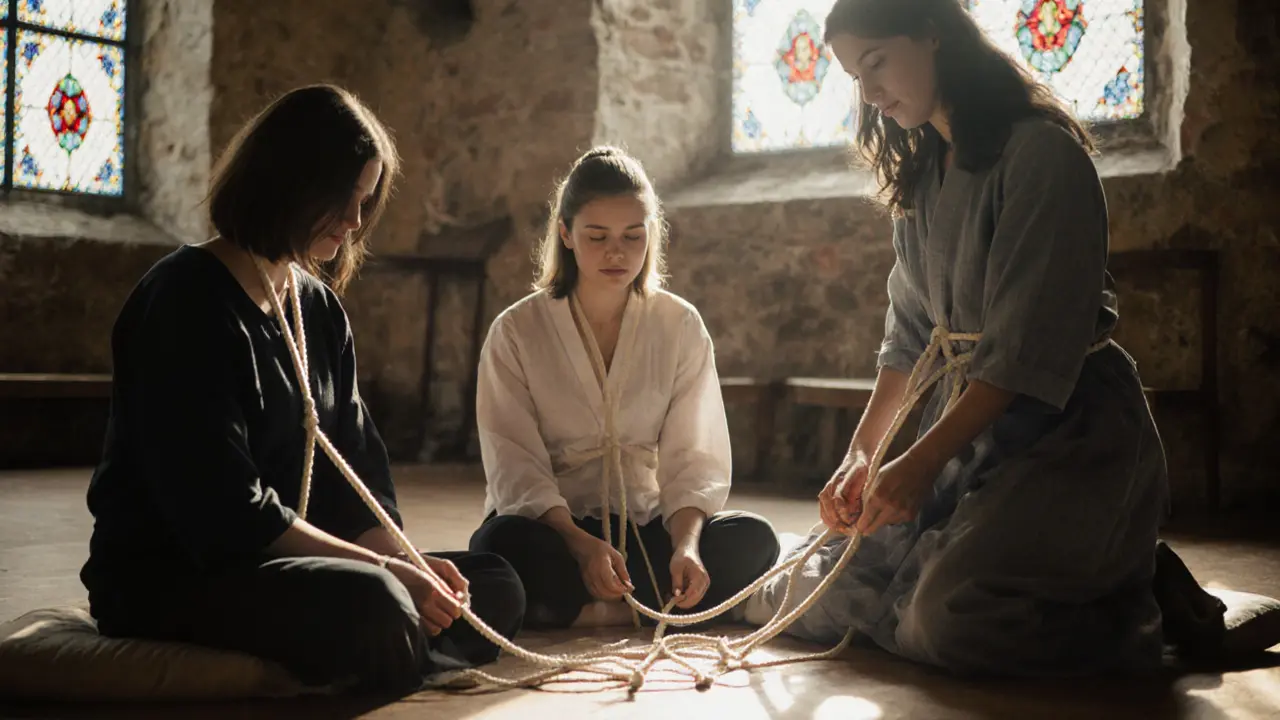
What You Won’t Find in Bondage London
You won’t find public displays. No one is performing for cameras or strangers. No one is selling tickets to watch. This isn’t a show. It’s a private exchange.
You won’t find drugs. Alcohol is strictly prohibited during sessions. The goal isn’t escape-it’s presence. You’re here to feel your body, your limits, your trust.
You won’t find stereotypes. No leather-clad dominatrixes with bullwhips. No men in masks yelling orders. The practitioners are diverse: women, non-binary people, men over 60, people who’ve been doing this for 20 years and people trying it for the first time. There’s no uniform. Only intention.
Workshops and Learning
Bondage isn’t just about being tied up. It’s about learning how to tie. London hosts monthly workshops on shibari, edge play safety, and aftercare techniques. These aren’t secret societies. They’re open to anyone who books. You don’t need experience. You just need curiosity.
One workshop, held in a converted chapel in Hackney, teaches beginners how to tie a basic chest harness using only cotton rope. No knots that cut. No pressure on nerves. Just slow, rhythmic movement. By the end, participants aren’t just tied-they’re connected. To the rope. To the person holding it. To themselves.
These classes are often led by people who’ve been through trauma. One instructor, a former nurse, started teaching after her own experience with PTSD. "I needed to feel safe in my own skin again," she said. "Tying someone else helped me learn how to be held."
The Aftercare Ritual
After every session, there’s a ritual. Not a quick hug. Not a quick text. A full 20-40 minutes of quiet. Warm blankets. Tea. Soft music. Gentle touch-just enough to remind the body it’s still safe. This is when the real work happens. The mind settles. The heart slows. The person who was once in control now needs comfort.
Some leave with tears. Others with laughter. A few just sit in silence, staring at the ceiling. That’s normal. That’s part of it.
Aftercare isn’t optional. It’s mandatory. Studios track how clients feel the next day. A simple follow-up email: "How did you sleep? Did you feel safe?" If someone says no, they’re offered free counseling. No questions asked.
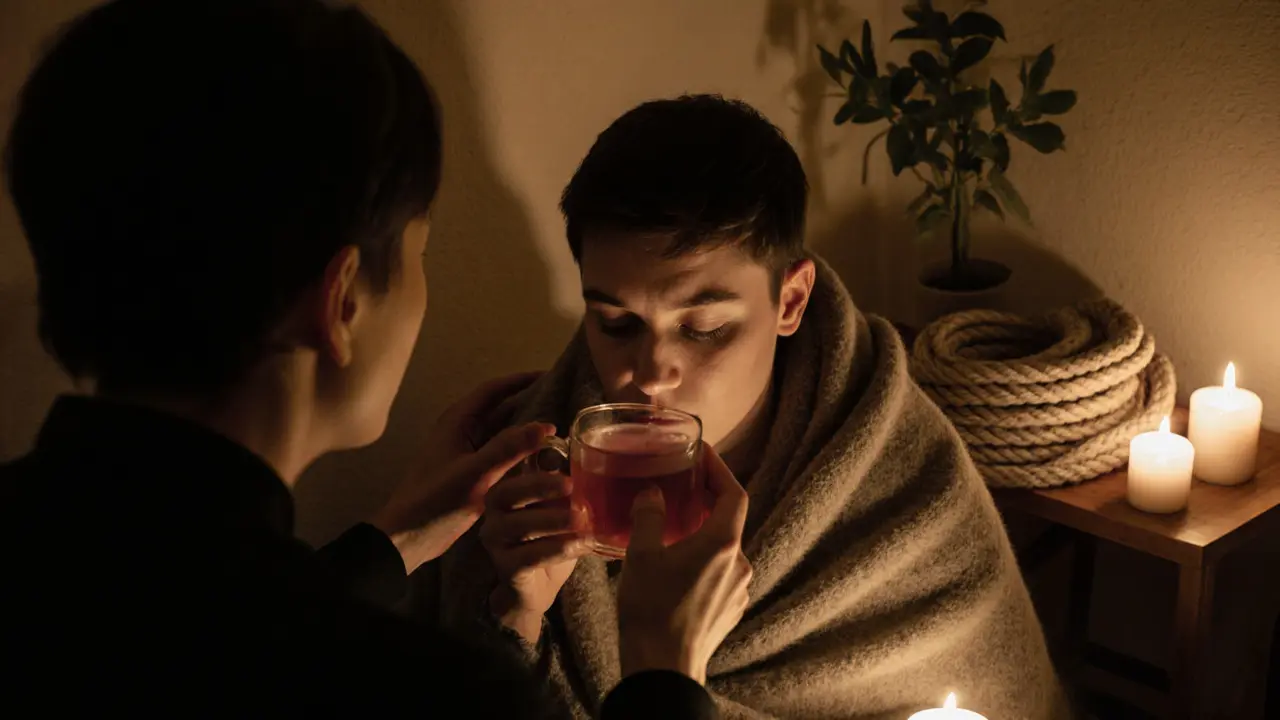
Why London? Why Now?
London’s bondage scene grew quietly over the last decade. Unlike Amsterdam or Berlin, it never went mainstream. It stayed small. It stayed safe. It stayed real.
Post-pandemic, demand spiked. People were lonely. They craved touch. Not sex-touch. The weight of a hand. The pressure of rope. The sound of someone breathing beside them. Bondage offered that without the pressure of romance or expectation.
Today, there are over 30 licensed studios in Greater London. Half of them are run by women. The average age of clients? 37. The most common reason cited? "I needed to feel something real."
What Comes Next?
If you’re curious, start here: read The New Topping Book by Dossie Easton. Watch a few YouTube videos on shibari safety. Then, email one studio. Ask questions. No pressure. No judgment.
You don’t need to be kinky. You don’t need to be brave. You just need to be willing to ask: "What if I let go?"
Is bondage in London legal?
Yes, as long as all activities are consensual, between adults, and take place in private. UK law protects the right to engage in BDSM as long as no serious harm is caused and all parties give informed consent. Studios follow strict safety guidelines and keep records to ensure compliance.
Do I need to be experienced to try bondage?
No. Most people who walk into a London bondage studio for the first time have never been tied up. Studios offer beginner-friendly sessions with trained practitioners who guide you step by step. Communication and consent are prioritized over skill.
How much does a session cost?
Prices vary by studio and duration. A typical 90-minute session starts at £120. Longer sessions or those involving specialized equipment can range from £180 to £300. Most include aftercare and a follow-up check-in.
Are there women who practice bondage in London?
Yes. Over half of the licensed practitioners in London are women or non-binary individuals. Many specialize in soft bondage, emotional connection, and shibari. The scene is more diverse than most people assume.
Can I bring a partner to a session?
Some studios allow couples to attend together, especially for workshops or introductory sessions. Private sessions are usually one-on-one to maintain focus and safety. If you want to explore as a couple, ask the studio ahead of time-they’ll guide you on the best approach.
What should I wear to my first session?
Wear something comfortable you don’t mind removing. Most people arrive in casual clothes-jeans, a T-shirt, sneakers. You’ll be asked to change into underwear or a robe before the session begins. No fetish gear is required.
Is bondage the same as sex?
Not necessarily. Many sessions involve no sexual contact at all. Bondage is about power exchange, sensation, trust, and control-not intercourse. Some people use it as a form of meditation, therapy, or emotional release. It’s whatever you need it to be.
Are there events or meetups for beginners?
Yes. London hosts monthly "Beginner Bondage Nights" at private venues. These are low-pressure, educational gatherings with demonstrations, Q&A, and light practice under supervision. No nudity. No pressure. Just learning. You can find them through the London Fetish Collective website.
Final Thought
Bondage London isn’t about breaking rules. It’s about rewriting them-between two people, in silence, with trust. It’s not for everyone. But for those who need it, it’s one of the few places left where you can truly be seen, held, and safe all at once.
